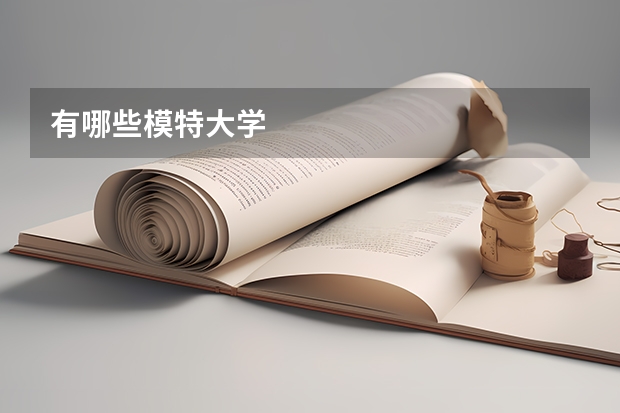爱尔兰特拉利理工学院什么专业比较好?
2024-12-01 05:45:30 | 博考网
本文目录一览:

美国哈维姆德学院的学校特色及专业设置
哈维姆德学院 是美国顶级的文理工程学院学院之一,位于加利福尼亚州克莱尔蒙特市,创办于1955年12月,是一所涉及科学、工程、数学领域的私立精英学院,同时还是克莱尔蒙特系列学院之一。美国《新闻与世界报道2008》把哈维姆德学院列为“美国最好的大学之一”。哈维姆德学院以其卓越的学术声誉在美国大学中名列第十四位,是美国大学中考上PHD学生比例最高的一所院校。大部分的学生会被以下学校吸收:哈佛大学、约翰·霍普金斯大学、麻省理工学院、加州理工学院、斯坦福大学等。哈维姆德学院为“小常春藤”之一的优秀文理学院。哈维姆德学院致力于培养社会科学及人文科学领域优秀的科学家、工程师和数学家,这样学生就更加清楚自己的工作对于整个社会所产生的影响。 该学院授予化学、数学、物理学、计算机科学、生物学、工程学四年制学位以及数学生物学跨学科学位,并设有计算机科学与数学或生物学与化学的联合专业。哈维姆德学院获得了美国西部高等教育协会之高等学院及大学认证委员会的认证,学院的工程学专业(美国为数极少的综合工程学专业之一)也得到了工程与科技认证委员会的认证,化学专业已达到美国化学学会的标准,化学系的毕业生毕业后即能达到化学学会成员的标准。在2009版的《美国名校》中,根据《美国新闻与世界报道》,哈维姆德学院在美国人文科学院校中排名第4位,本科工程专业排名第二位。
学校特色
学校最近被评为“全美学生最快乐的学校”第五位。
99% 的学生选择住校。从学校驾车仅需 1 小时即可到达洛杉矶。
学校在最新的《美国新闻和世界报导》工程类大学排行榜只设学士和硕士学位类排名中位居第二。
大部分的哈维姆德学院毕业生升入更高的学府以后是免学费的,大部分的学生会被以下学校吸收:哈佛大学、约翰·霍普金斯大学、麻省理工学院、加州理工学院、斯坦福大学等。福特公司基金会经研究发现,全国范围内,在制造业中能获得博士学位的学生人数最多的是加州理工学院,其次是麻省理工学院,然后是哈维姆德学院; 在数学、自然科学中获得博士学位的学生人数最多的是加州理工学院,其次是哈维姆德学院,然后是麻省理工学院。
哈维姆德学院的学生不仅可以在五校跨校选课,还可以拿其他学校的专业学位。五校共享非常多的资源,比如图书馆,书店,健身房以及学生俱乐部等等。五校的食堂也都共享,共有7个食堂散布在五校校园各地。五校基本都在走路20分钟的距离以内,所以去别的学校上课或是去别的食堂换换口味都非常方便
哈维姆德学院是文理学院中为数不多的以数学、自然科学和工科为主的学校,在这几个领域哈维姆德学院有着顶尖的实力和出众的声誉。学校的课程难度非常大,考试评分也相当严格,学生需要对学业非常的投入和努力。哈维姆德学院实行Honor Code政策,学生为自己和他们的行为负责,校内充满信任的问题,什么大部分考试都是由学生自己规定时间和地点并不设监考。
哈维姆德学院的学业很重,但校内的氛围很轻松和友好,各种善意的玩笑和恶作剧在校内很流行。同时,所在的克莱蒙是一个大学城,距离洛杉矶,海滩和迪斯尼乐园都非常近。
哈维姆德学院课程非常难。学生是为了学习教学、工程和其他科学而来。学生素质非常高。教授与学生关系密切。哈维姆德学院地处加州的洛杉矶(Los Angeles)盆地的克利孟特(Claremont)。距离洛杉矶35英里,与另外一个著名的文理学院波摩那(Pomana)学院同处一个小镇。
专业设置
本科:生物学、化学、计算机科学、工程学、数学、生物学、物理学 。哈维姆德学院拥有自己一套教育系统,而又与克莱蒙特大学联盟的其他成员分享教育设施,但每个学校分别管理本校的机构,且拥有自己的录取程序。
哈维姆德学院的学生被鼓励到其他学院修习课程,特别是学生主修专业之外的课程,并计入本校学分。对哈维姆德学院感兴趣的学生一定要具有一定的数学和科学的才能。本学院提供数学、物理、工程、化学、生物、计算机专业,同时也提供多元的课程,三分之一的课程是人文课程。学生也会欣赏经济、心里、哲学、历史、艺术、文学等课程。
学校排名
US News颁布的“全国文理学院排行”中位列16
数学专业要求
A mathematics degree from Harvey Mudd College will prepare students for a variety of careers in business, industry or academics. Mathematical methods are increasingly employed in fields as diverse as finance, biomedical research, management science, the computer industry and most technical and scientific disciplines. To support the academic and professional goals of our majors, we offer a wide selection of courses in both pure and applied mathematics. This selection is enhanced by courses offered in cooperation with the other Claremont Colleges, including graduate courses at the Claremont Graduate University.
Students will have many opportunities to do mathematical research with faculty through independent study, a summer research experience, or their senior capstone experience. Active areas of mathematical research at HMC and The Claremont Colleges include algebra, algebraic geometry, algorithms and computational complexity, combinatorics, differential geometry, dynamical systems, fluid mechanics, graph theory, number theory, numerical analysis, mathematical biology, mathematics education, operations research, partial differential equations, real and complex analysis, statistical methods and analysis, and topology.
The culmination of the degree is the senior capstone research experience: every student experiences a taste of the life of a professional mathematician as part of a team in the Mathematics Clinic Program or by working individually on a Senior Thesis.
The Mathematics Clinic program extends the academic experience of our majors. An educational innovation of HMC, our Clinic Program brings together teams of students to work on a research problem sponsored by business, industry or government. Teams work closely with a faculty advisor and a liaison provided by the sponsoring organization to solve complex real-world problems using mathematical and computational methods. Clinic teams present their results in bound final reports to the sponsors and give several formal presentations on the progress of the work during the academic year.
Our Senior Thesis program provides students with the opportunity to work independently on a problem of their choosing. Advisors and readers may be chosen from the HMC faculty and the other mathematicians at The Claremont Colleges, providing students with a wealth of research opportunities. As with Clinic, the end product of a thesis is a bound volume as well as presentations made at a professional conference or other venue, during the college-wide Presentations Days and throughout the year.
课程需求
Every HMC student, regardless of major, takes three semesters of mathematics (covering the topics of calculus, multivariable calculus, linear algebra, probability & statistics, and differential equations) as part of the general core curriculum.
Beyond the Core courses, the course of study for a mathematics degree has five components: the Major Core, Computational Mathematics, the Senior Capstone Experience (Clinic or Thesis), Math Forum and Math Colloquium, and the Elective Program. Each of these components to the major program is described below.
专业核心
A set of core courses is required of each major. These courses cover a range of fundamental fields of mathematics, and position the student to pursue any one of a variety of elective programs to finish the degree.
Mathematics 55: Discrete Mathematics
Mathematics 70: Intermediate Linear Algebra
Mathematics 80: Intermediate Differential Equations
Mathematics 131: Mathematical Analysis I
Mathematics 157: Intermediate Probability
Mathematics 171: Abstract Algebra I
Mathematics 180: Introduction to Partial Differential Equations
工程专业
Since prehistoric times when the caveman invented the wheel, engineers have played a vital role in society. Using theories and applications of science and mathematics, engineers work to design, create and improve things to solve problems and benefit the world at large. Their work ranges from designing and building bridges to making business deals, researching new methods of production and testing manufactured products for quality and safety assurance.
工程专业分类
While no list can be all-inclusive, the following is a start on the different types of engineers that work in the field.
Aerospace engineers – design, analyze, produce and, occasionally, install components that make up aircraft, spacecraft, high-altitude vehicles and missiles
Agricultural engineers
Biomedical engineers
Chemical engineers – work in different areas of industry to turn recent advances in chemistry into products
Civil engineers – create cities and design, plan, and build roads, bridges, buildings and other types of infrastructure.
Communications engineers
Computer engineers – work with computer systems to help companies maintain their computer networks and help determine what technical direction they should take.
Control systems engineers
Electrical engineers – design chips for VCRs, stereos, radios and other electronic products; and work with quantum electronics, acoustics, signal processing and ferroelectrics.
Environmental engineers
Geotechnical engineers
Industrial engineers – work with companies to determine how they should best allocate their resources (A large percent of industrial engineers work with manufacturing companies and specialize in a specific area.)
Management/economics engineers
Manufacturing engineers
Materials engineers – design new materials and new processes for making materials; also select and apply existing materials to solve design problems
Mechanical engineers 博考网
Mining engineers
Nuclear engineers – work to optimize the output of nuclear plants and in atomic research facilities
Ocean engineers
Optical engineers
Petroleum engineers
Robotics engineers – design and make robots, as well as develop new uses and abilities for robots
Sanitary engineers
Structural engineers – ensure that buildings and other structures are safe and meet the required codes
Transportation engineers – plan, design and upgrade streets, highways, railroads, airports and other transit and transportation systems.
学历要求
Harvey Mudd College’s engineering majors earn a bachelor of science in engineering degree. They may choose to emphasize a particular engineering specialty by appropriate choice of elective courses and Engineering Clinic projects.
Students entering the engineering major have successfully completed the Common Core, a series of courses deisgned to provide foundational learning experiences. This accounts for 37.5 credit untis (cu) in math, physics, chemistry, biology, computer science, engineering, and humanities, social sciences and the arts. PE is also required for 3 credit units.
核心
The engineering curriculum consists of three main areas, or stems, in engineering design, engineering systems, and engineering science. Each area contributes to an interdisciplinary based approach to teaching and learning with design as the distinguishing feature, with systems providing unifying concepts and tools to build the general framework for problem solving across disciplines, and with science to provide needed fundamentals in the context of a broad-based program. This accounts for 46.5 cu*.
The engineering design courses focus on working in teams on open-ended, externally-driven design projects. Hands-on exposure to professional practice begins with students undertaking challenging design problems in the first year with an introduction to conceptual design, engineering drawings, and manufacturing techniques (E4, continues with a laboratory course in experimental engineering (E80) and a three-semester Clinic experience (E111-E113).
The sequence of systems courses (E59 and E101-1E02) provides analysis and design tools to model and interpret the behavior of general engineering systems. These courses are multidisciplinary in approach, enabling students to gain a unified view of the entire spectrum of engineering disciplines.
The engineering science courses (E82, E83, E84, E85 and E106) establish a broad base of fundamental knowledge needed by an engineer practicing in the field. A half course in engineering mathematics (E72) is also required for the engineering major.
教学目标
Produce graduates who are exceptionally competent engineers whose work is notable for its breadth and its technical excellence;
Provide a “hands-on” approach to engineering so that graduates develop an understanding of engineering judgment and practice
Prepare and motivate students for lifetime of independent, reflective learning
Produce graduates who are fully aware of the impact of their work on society, both nationally and globally
Offer a curriculum that is current, exciting and challenging for both students and faculty, but can be completed in four years by any motivated student who is admitted to HMC

克莱尔蒙特研究生大学学校排名
全球高校排名显示,克莱尔蒙特研究生大学在全球高校中排名为1217。在专业排名方面,该大学在生物科学专业研究生院排名中位列105,艺术专业研究生院排名中位于第50,心理学专业研究生院排名中位于103,政治学专业研究生院排名中位于第51,历史专业研究生院排名中位于第48,英语专业研究生院排名中位于第46,数学专业研究生院排名中位于第64。这些排名反映了克莱尔蒙特研究生大学在不同学科领域的学术水平和教学质量。在国际视野上,克莱尔蒙特研究生大学在全球高校中展现出一定的竞争力。尽管在总体排名中位于相对较低的位置,但在某些专业领域表现出色。生物科学、艺术、心理学、政治学、历史、英语和数学等专业研究生院的排名均处于中上水平,这表明该大学在这些领域拥有较强的教学和研究实力,能够为学生提供高质量的教育资源和学术氛围。
在关注国内MBA教育的方面,克莱尔蒙特研究生大学在国内商学院排名中位列第85。这表明该大学在MBA教育领域也具有一定的影响力和认可度。在全球化的背景下,克莱尔蒙特研究生大学通过与国际学术界的交流合作,不仅提升了其在全球高校排名中的位置,也在专业领域获得了良好的声誉。这为学生提供了更多国际交流和视野拓展的机会,有助于培养具有全球竞争力的高级管理人才。
综上所述,克莱尔蒙特研究生大学在不同学科领域的排名情况展示了其在学术研究和教育质量方面具有一定的优势和影响力。通过关注全球高校排名和专业排名,可以了解到该大学在不同领域所取得的成绩,为有志于深造的学生提供了参考依据。同时,该大学在国际教育合作方面的努力也为其在全球高校中的地位增添了重要的一笔,为学生提供了更加丰富和多元化的学习体验。
爱尔兰特拉利理工学院什么专业比较好?
博考网(https://www.380856.com)小编还为大家带来爱尔兰特拉利理工学院什么专业比较好?的相关内容。
特拉利理工学院(特拉利)(Institute of Technology, Tralee)是爱尔兰一所高等教育机构,创办于1977年,1993年开始自主经营。学院可以颁发、授予硕士学位、学士学位、副学士学位以及一些专业领域的资格证书。特拉利理工学院由商务与社会研究学院、工程与建筑研究学院、科学与计算机学院三所学院组成,涉及专业主要包括酒店及娱乐管理、商务研究、应用社会研究、电子商务、旅游研究、旅游与语言、互动多媒体、幼儿教育与护理、管理学、信息系统管理、市场营销、会计学、计算机游戏开发、计算机软件开发、计算机电话技术、信息技术支持、多媒体、分析科学、机械与电力、生产技术、建筑管理、农业工程管理、工业工程管理、农业工程、民用工程等。
特拉利理工学院是地区的经济和社会发展主要动力源泉,与克里有限公司,科克郡、克莱尔、利默里克均有合作,为学生和企业提供了更多的机会。学院在全球高校网(4ICU)国家高校排名爱尔兰大学中排在第十二位。
优势专业:电视、无线电、新媒体、广播、数字媒体、创意写作、数字化营销、社会化营销、音乐技术
以上内容均来自网站,希望能对您有所帮助。 以上就是爱尔兰特拉利理工学院什么专业比较好?全部内容,更多相关信息,敬请关注博考网。更多相关文章关注博考网:www.380856.com
免责声明:文章内容来自网络,如有侵权请及时联系删除。

爱尔兰留学什么专业比较好 计算机与信息技术专业 爱尔兰国家的支柱产业就是电子信息产业,世界上最大的软件生产国和出口国,由于英国脱欧的闹剧,许多世界性大集团把总部设在爱尔兰。苹果在爱尔兰增加了1200个岗位,亚马逊、谷歌和特斯拉都有研发单位在爱尔兰。计算机专业毕业之后,爱尔兰政府会给2年毕业签时间,以便找工作。而且与计算机相关的职业是高技能职位之一,收入也很可观。 推荐学校:

兰州工业大学有什么专业比较好? 兰州工业学院是一所具有较高教学质量和科研实力的工科院校,拥有多个优势专业。以下是一些值得关注的优势专业: 1.机械工程及自动化:该专业培养具备机械设计、制造、自动化控制等方面的知识和技能,能在机械制造、汽车制造、航空航天等领域从事设计、研发、生产、管理等工作的高级工程技术人才。 2.电气工程及其自动化:该专业培养具备电气工程及其自动化技术的基本理论、基本知识

在爱尔兰读一年语言多少钱语言课程费用 多少课程语言一年费用爱尔兰 爱尔兰的教育事业发展水平在国际上处于一流水平,吸引众多国际学生的关注。爱尔兰作为一个纯正的英语国家,在专业课程授课中,也采用全英文语言教学,国内语言要求不过关的学生想要去爱尔兰留学,可先就读语言课程,本文就为您介绍一下在爱尔兰读一年语言多少钱。在爱尔兰读一年语言多少钱如果学生在爱尔兰只学习语言,根据学习时间的长短和学校的

贵州理工学院什么专业比较好 贵州理工学院什么专业比较好 贵州 理工学院比较好的专业有机械设计制造及其自动化、化学工程与工艺、数据科学与大数据技术、采矿工程、飞行器制造工程、环境工程、资源勘査工程、制药工程、电气工程及其自动化、土木工程等。 一、贵州理工学院重点特色专业名单序号专业名称备注1机械设计制造及其自动化国家级一流专业建设点2020获得2环境工程省级一流专业建设点2

爱尔兰语专业大学排名2017最新排行榜 中国大学哪些本科的爱尔兰语专业,是2017高考优秀考生报考的最佳选择呢?艾瑞深中国校友会网最新公布的2017本科专业排行榜中就有你想知道的答案,和小编一起来看看吧!在2017本科爱尔兰语专业排行榜中,北京外国语大学雄居排行榜榜首,想知道全部的爱尔兰语专业排名请看下表:公办本科大学爱尔兰语专业排名名次学校名称专业星级所在地区地区排名1北京外国语大学3星级

2024软科中国大学专业排名出炉!国内第一的建筑学、城乡规划、风景园林花落谁家? 2024年6月13日,权威的高等教育专业评价机构软科发布了“2024软科中国大学专业排名”,该排名涵盖了810个专业,横跨93个专业类和12个专业门类,是目前中国本科专业排名中规模最大、覆盖最广的一次。软科排名以学校条件、学科支撑、专业生源、专业就业和专业条件五个维度进行评价,共设25项指标,旨在为学生和家长提供

爱尔兰语专业开设课程和未来就业方向分析(原创) 就业方向专业课程就业方向未来分析开设爱尔兰程和爱尔兰语原创 爱尔兰语专业开设课程和未来就业方向分析(原创) 距离2019年高考还剩下100多天,考生在前线奋斗,家长也不要忘了为学生提前做好志愿准备哦。孩子未来要学习的大学专业有什么用?考生和家长往往误以为同名专业就是同一专业,至少也应该是大同小异的。但是,同名专业在不同高校其实并不

华北理工大学什么专业比较好 华北理工大掘氏学比较好的专业有采矿工程、临床医学、金属材料工程、冶金工程、康复治疗学、机械设计制造及其自动化、护理学、化学工程与工艺、预防医学。 华北理工大学(NorthChinaUniversityofScienceandTechnology),简称华北理工,位于河北省唐山市,是一所省属重点骨干大学、省重点支持的国家一流大学建设高校;是中华人民共和国应急
-
 关于高考填志愿 二本A类与B类的问题(高考志愿填报流程图解)
关于高考填志愿 二本A类与B类的问题(高考志愿填报流程图解)2024-05-26 17:21:13
-
 中考560分,舞蹈特长生70分,在宁乡能上什么高中
中考560分,舞蹈特长生70分,在宁乡能上什么高中2024-01-30 11:40:27
-
 我是普通高中毕业生,如果春招被大专录取了,但夏季高考成绩过本科线,那还能填报本科院校志愿吗?
我是普通高中毕业生,如果春招被大专录取了,但夏季高考成绩过本科线,那还能填报本科院校志愿吗?2024-02-01 12:48:01
-
 青岛即墨市有哪些高中?
青岛即墨市有哪些高中?2024-04-11 02:37:18
-
 南充三诊2023分数线 绵阳三诊分数线2023一分一段
南充三诊2023分数线 绵阳三诊分数线2023一分一段2024-02-05 01:04:18
-
 有哪些模特大学
有哪些模特大学2024-01-30 00:54:16